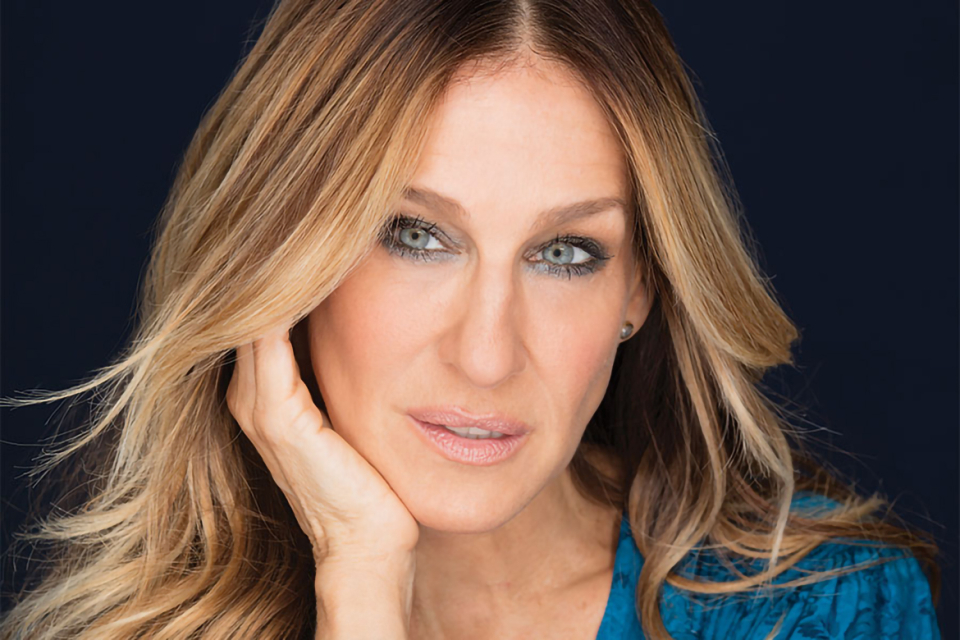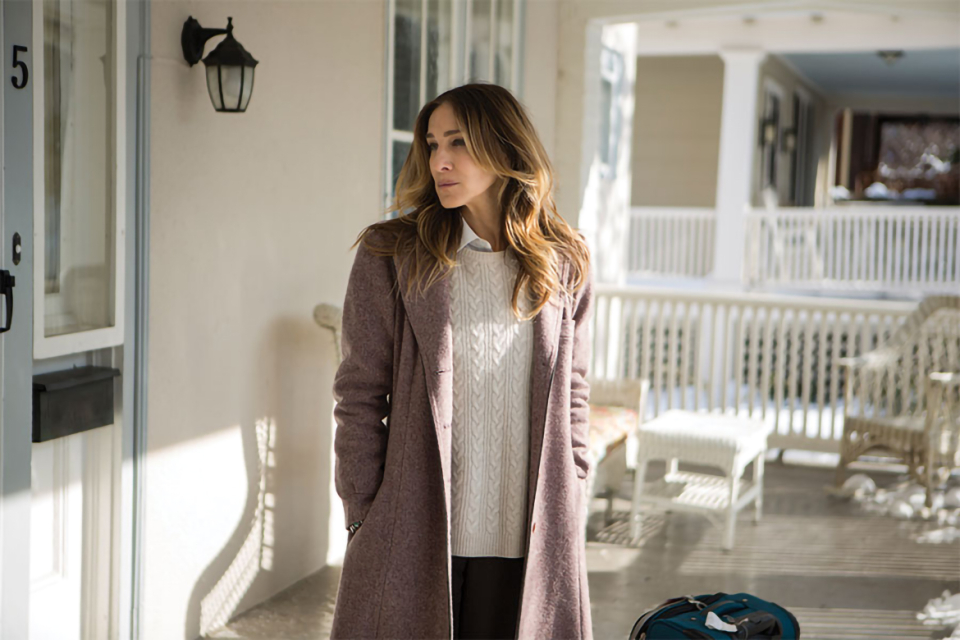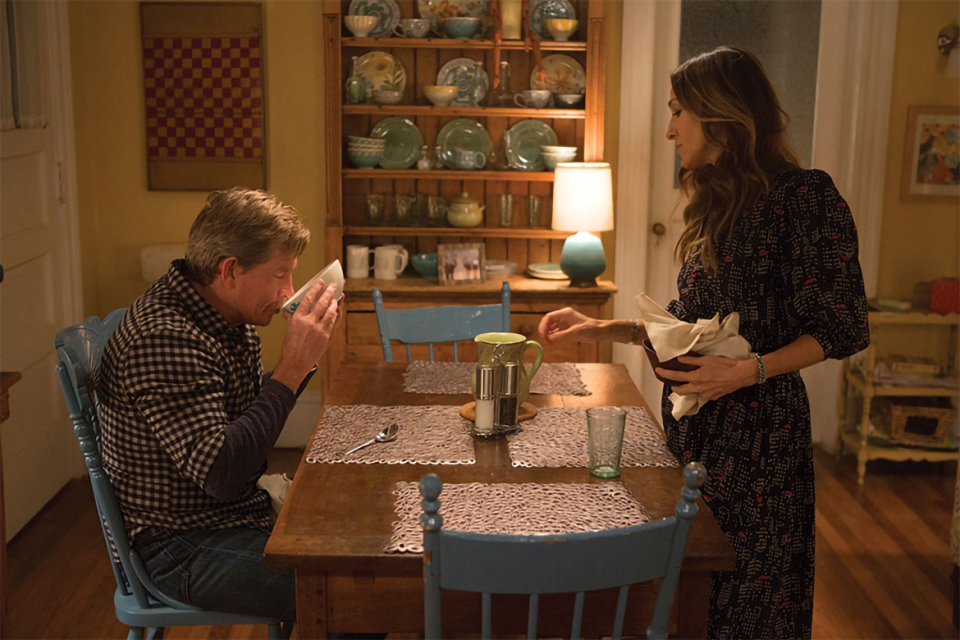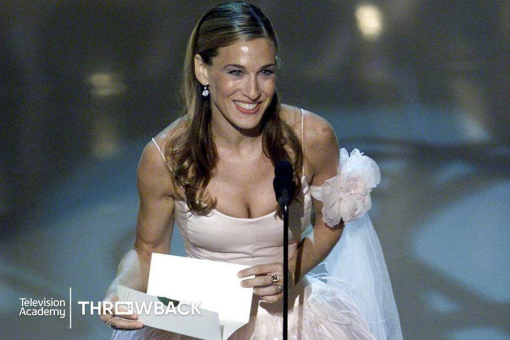Sarah Jessica Parker recalls shivering on a gray February day on the porch of a Victorian house in Hastings-on-Hudson, New York, for her new HBO series, Divorce.
Thomas Haden Church, who plays her husband, has locked her out of the family home and taunts her through the front-door glass: “I’m going to make sure that your children hate you.” In this final scene of the pilot, the camera pulls away, leaving Parker a tiny blip in a desolate suburban landscape.
It’s a scene that certainly won’t elicit laughs. But Divorce — despite its comedy billing — is no frothy romp. And in subject and tone, it is more than a suburban commute away from Parker’s previous HBO series, the long-running ode to the Manhattan feminista, Sex and the City, which brought her two Emmys, as an executive producer and as lead actress.
“I loved doing that scene and the way that first episode ends because it means it’s all in front of her, and now what?” says Parker, just days after wrapping the final episode of the 10-part season one, which debuts October 9. “The snow was falling and it was freezing, and we got to bring in a big crane and give perspective to that loneliness and the unknown.”
For Parker, the 30-minute series Divorce is something of a leap into the unfamiliar. This time, the actress who made the cosmo-sipping Carrie Bradshaw part of the zeitgeist is tackling more difficult terrain. No longer navigating cobblestones in Manolo Blahniks, she is cracking the blueprint of a crumbling marriage.
“About three or four years ago, I had been thinking a lot about [a show about a divorce],” says Parker, who also serves as an executive producer with Paul Simms, Sharon Horgan, Alison Benson and Aaron Kaplan. “I thought it hadn’t really been explored the way that I was hoping to explore it — marriages are wonderfully complicated and are rich with potential for storytelling.”
Like roughly half the population, Parker is a product of divorce. Her parents — then living in a middle-class town in Appalachian Ohio — split when she was 14 months old, and her mother remarried two years later. But because she was so young, she wasn’t able to draw upon that experience in helping craft the character of Frances DuFresne, an unfaithful, unsatisfied mother of two.
“Strangely, I didn’t really consider that with this,” she says. “I don’t have firm memories of that time, anguish or any of that. The more relevant thing to think about was just a woman my age who is experiencing this today.”
As such, she relied on tales from friends in various stages of uncoupling — ones who have pulled the trigger or are in the process of lawyering up, have cheated or are contemplating an affair. Conversations served as her primary form of research.
“There are a lot of books I could read about this person or this character, but Frances is not a real person, a historical figure,” Parker observes. “She’s a human being who is like all of us in lots of ways.”
As for Parker’s real-life husband of nearly 20 years, actor Matthew Broderick, he gave the pilot an enthusiastic thumbs-up.
“He saw a cut before we even finished shooting, and he loved it,” she reports. “I was so nervous to show it to him. I was working, and he saw it and then called me. We talked on the phone about it. He was really pleased, which was wonderful to hear, a great relief.”
After all, Parker’s return to episodic television need not result in a case of life imitating art. Shooting on location for five laborious months can put a strain on any family. But the real-life mother of three puts her own career-family balancing act in perspective.
“I knew that to do it right was the kind of commitment that means the children aren’t being tended to in the way that they would like. But you have conversations with your family and your children and you explain,” Parker says. “The sacrifices that we’re making as a family are nothing compared to the millions and millions of mothers who are working two and three lousy jobs and aren’t being paid well.”
For Parker, who has largely put her movie career on hold since shooting the indie romantic comedy All Roads Lead to Rome in 2014, there’s now just one job (at least, outside the home) and it’s clearly a good one.
This article originally appeared in emmy magazine, Issue No. 8, 2016













